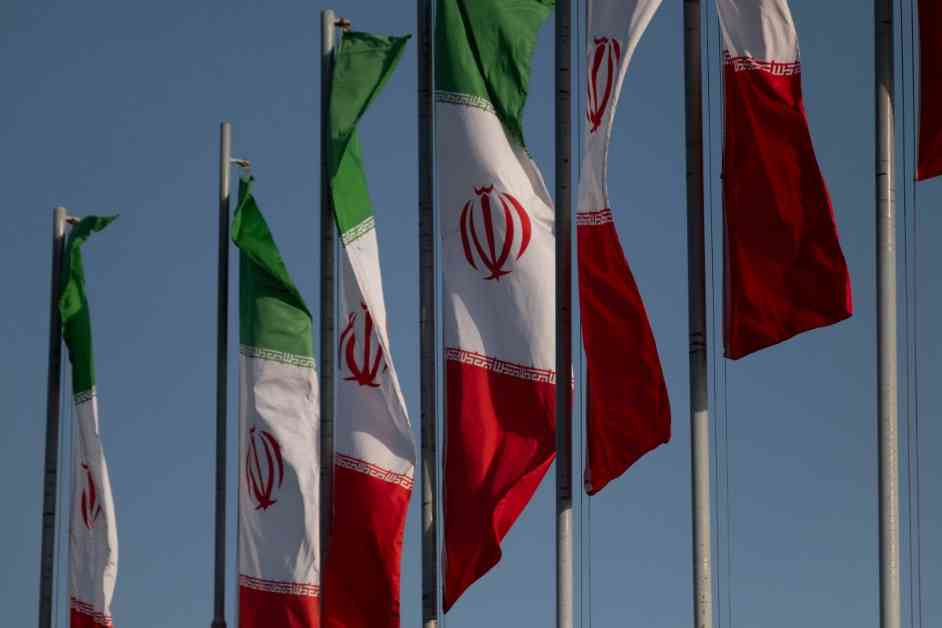Iranian hackers charged with hacking Trump campaign
The U.S. Department of Justice recently announced criminal charges against three hackers working for Iran’s Islamic Revolutionary Guard Corps (IRGC), accusing them of a four-year-long hacking campaign that included targeting Donald Trump’s presidential campaign. The indictment named Masoud Jalili, Seyyed Ali Aghamiri, and Yasar (Yaser) Balaghi as the individuals responsible for the hack-and-leak operation. This operation not only targeted the Trump campaign but also former White House and senior government officials, as well as members of Congress.
Retaliation for Soleimani’s Killing
According to the indictment, the hacking operation was launched in part as retaliation for the killing of Iranian general Qasem Soleimani by the Trump administration in 2020. The Iranian government vowed revenge for Soleimani’s death, leading to a series of cyber attacks aimed at undermining the Trump campaign and influencing the 2024 presidential election. U.S. officials have also linked these hacking efforts to a wider Iranian campaign targeting former members of the Trump administration.
Influence on U.S. Elections
During a press conference, U.S. Attorney General Merrick Garland highlighted the Iranian hackers’ attempts to influence the upcoming 2024 presidential election through their cyber activities. Garland emphasized that foreign authoritarian regimes like Iran do not have a place in shaping the U.S. democratic process. He stressed that American citizens alone should decide the outcome of their country’s elections, free from foreign interference.
Hacking Campaign Details
The indictment revealed that the Iranian hacking operation was designed to sow discord and erode confidence in the U.S. electoral process. The hackers used phishing lures to compromise online accounts of former senior government officials, stealing campaign material with the intention of leaking it to the media. In August, several prominent news outlets received documents allegedly stolen from the Trump campaign, sparking concerns about potential election interference.
Comparison to Russian Hacking
The Iranian hacking campaign bore similarities to the Russian government’s interference in the 2016 U.S. presidential election. In that instance, Russian hackers targeted the Democratic National Committee and individuals associated with the Hillary Clinton campaign. However, news organizations refrained from reporting on the content of the stolen documents from the Trump campaign, opting instead to focus on the fact that they had been hacked and leaked.
Response from Tech Companies
Both Microsoft and Google accused Iranian government-backed hackers of targeting individuals affiliated with both the Trump and Biden campaigns. The tech companies joined the FBI, the Office of the Director of National Intelligence, and the U.S. cybersecurity agency CISA in condemning Iran’s cyber activities aimed at influencing the U.S. election process. These collective efforts aimed to expose and counter foreign malign influence on American elections.
Journalist’s Decision to Publish
Independent journalist Ken Klippenstein made headlines by deciding to publish a 271-page dossier on Republican vice presidential nominee J.D. Vance, despite concerns about potential foreign influence. Klippenstein justified his decision by stating that the information was of significant public interest during an election season. By choosing to release the dossier, Klippenstein sought to inform the public while navigating the complex landscape of foreign cyber threats and their impact on political campaigns.
Conclusion
The recent charges against Iranian hackers for their role in hacking the Trump campaign underscore the ongoing threat posed by foreign actors seeking to influence U.S. elections through cyber means. As technology continues to evolve, it is essential for government agencies, tech companies, journalists, and the public to remain vigilant against malicious cyber activities that undermine the integrity of the democratic process. By exposing and addressing these threats, society can safeguard the electoral system and uphold the principles of transparency and fair elections.











